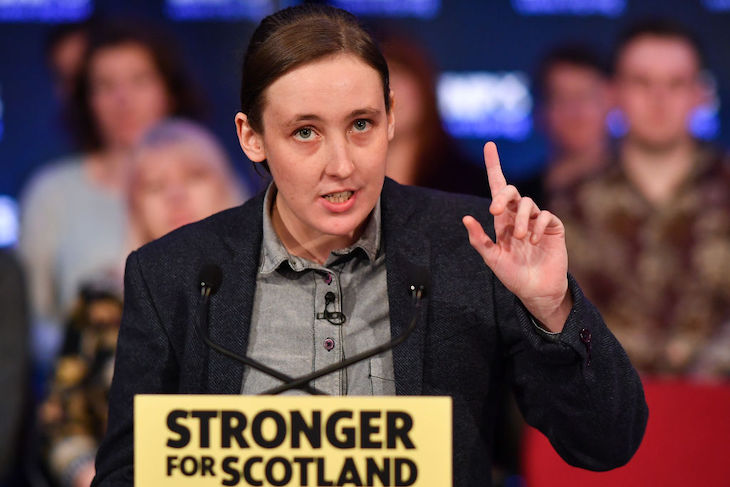Nicola Sturgeon’s reshuffle of her Westminster team is more than a post-election shake-up of the Nationalist front bench. For one thing, it represents a shift to the next generation. Mhairi Black (25), who became something of a political superstar upon her election in 2015, has been promoted to Scotland spokeswoman; freshly elected Stephen Flynn (31) is suddenly shadowing the chief secretary to the Treasury; David Linden (29) will head up housing and local government policy; and Amy Callaghan, the 27-year-old who unseated Jo Swinson in East Dunbartonshire, will lead on pensions. The SNP has a wealth of talent coming up and is giving them their first step on the ladder.
The SNP’s front bench line-up is markedly more impressive than Labour’s. For instance, contrast foreign affairs spokesman Alyn Smith and defence lead Stewart McDonald with what Jeremy Corbyn’s party has to offer. Meanwhile, the depleted Scottish Tory ranks (they lost half their seats to the SNP in December) may struggle to match the Nationalists in political heft, as well as number. For all the criticisms of Black — some of them tinged with rank snobbery — she is, despite her youth, a much more seasoned media performer than the somewhat reclusive Scottish Secretary Alister Jack. The Scottish press, for the most part ill-disposed to the Tories, will relish Black’s plain-spoken approach against the mild-mannered businessman.
Another announcement worth noting is the news that Kirsty Blackman, the SNP’s deputy leader at Westminster, will be assuming ‘a key strategic role leading on the constitution, as preparation builds up for Scotland’s independence referendum’. The specifics of this post aren’t clear yet but it suggests the Nationalists are gearing up to pile more pressure on the government to grant them their second referendum. Nicola Sturgeon’s party took 47 of Scotland’s 59 seats in the general election, 48 if you included Neale Hanvey, who was dropped as a candidate before polling day over antisemitism allegations but went on to win his Kirkcaldy and Cowdenbeath seat anyway. The Nationalists claim this gives them a mandate for a re-run of the 2014 plebiscite on Scotland leaving the UK. Brexit isn’t Boris’s only headache — he’s got Scexit to worry about too.
Tory sources I talk to are glum about Scotland right now. They have lost their most popular Scottish leader in Ruth Davidson, can’t figure out how to curb the SNP’s momentum, have to contend with key figures in Scottish Labour backing calls for a Scexit referendum, and face a Scottish Parliament poll next year which could produce another majority for Nicola Sturgeon. The government seemingly lacks the stomach for a political confrontation with Sturgeon — say, by legislating to rein in her use of the Scottish Parliament and Scottish Government to advance the secessionist agenda — and I understand the Treasury still needs to be convinced of the case for significantly increased spending on Scotland, in particular direct spending by Whitehall that cuts around the Holyrood grievance circus.
In these circumstances, the SNP begins 2020 on a high. Events are of course pending, plus as Kate Andrews points out, the Nationalists have a lot of work to do on their Europe policy, and much else besides. But purely on politics and positioning the SNP is in a better place than it has been in years. It has won another landslide of Scottish seats, enjoys some proper talent on its front bench, and benefits from a divided and listless opposition. The task for Nicola Sturgeon is to turn these perversely favourable circumstances into the independence her party exists to win. The task for the Tories — and, given the current state of Labour in Holyrood and Westminster, it really is just the Tories — is to stand in the path of a Scottish political juggernaut and somehow make it stop.







Comments